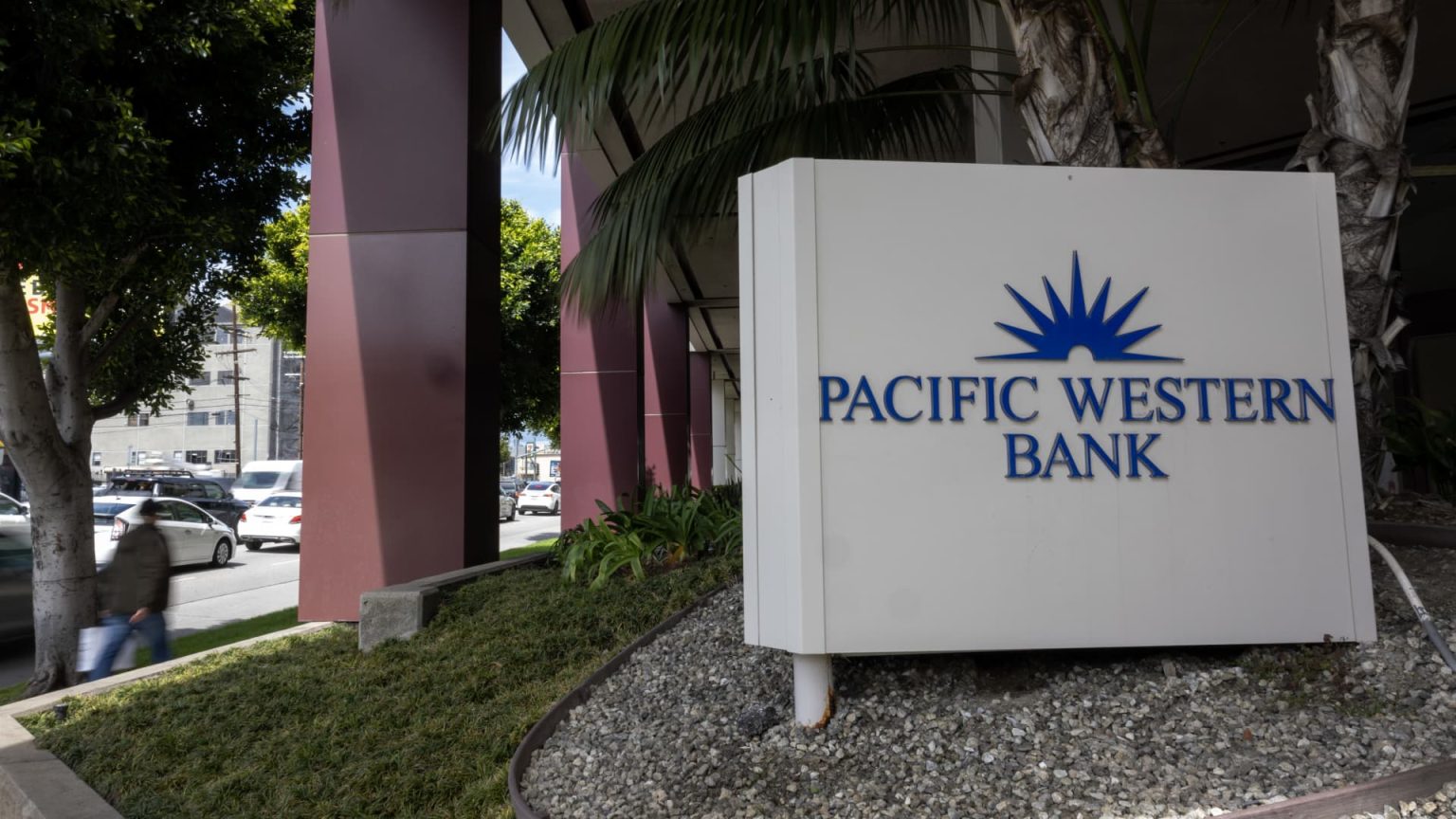A Pacific Western Bank sign is seen on May 4, 2023 in Los Angeles, California.
David Mcnew | Getty Images
Shares of PacWest were under pressure once again Thursday after the struggling regional bank said that deposit outflows resumed in the first week of May.
The stock was down 23%, further extending its recent declines. Entering the day, PacWest’s shares had already fallen 40% this month and more than 70% for the year.
PacWest’s stock was under pressure again on Thursday.
related investing news

The bank said in a securities filing Thursday that its deposits declined 9.5% during the week of May 5. PacWest said that the majority of those outflows came after media reports that said the lender was exploring strategic options.
The bank also said that it was able to fund those withdrawals with available liquidity. PacWest said it now has $15 billion of available liquidity compared with $5.2 billion in uninsured deposits.
The update marks a change from May 4, when PacWest said that it was not experiencing “out-of-the-ordinary deposit flows” and that total deposits had increased since the end of March.
During the first quarter, PacWest’s total deposits declined 16.9%, and the bank said it would use strategic asset sales to reshape its balance sheet.
Several Wall Street analysts theorized that the most recent outflows were from PacWest’s venture capital customers.
“While the deposit news is not what the company wants to report, if the outflows are truly from the venture depositors and not the core bank, that is better news, despite the higher total outflow disclosure. The financial result is that the company is borrowing more to replace those deposits,” RBC Capital Markets analyst Jon Arfstrom said in a note to clients.
Following PacWest’s filing, Western Alliance released its own update and said that total deposits have grown by $600 million since May 2. Shares of that bank were up slightly on Thursday. Elsewhere, shares of Zions Bancorp dipped 3.5% and the SPDR S&P Regional Banking ETF (KRE) was down 1.4%.
The regional banking sector has been under pressure since early March, when concern about the impact of higher interest rates led to a run on deposits at Silicon Valley Bank, which was seized by regulators. Signature Bank soon followed, and then First Republic was seized and sold to JPMorgan before the market opened on May 1.
JPMorgan CEO Jamie Dimon told Bloomberg News on Thursday that he thinks regional banks are “quite strong” but added “I think we have to assume there’ll be a little bit more” to the crisis.
— CNBC’s Michael Bloom contributed reporting.
Read the full article here




